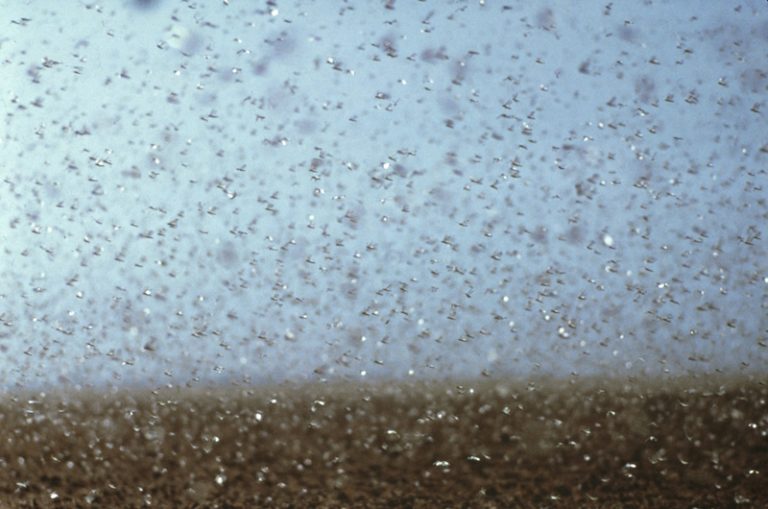Weeks before the coronavirus spread through much of the world, parts of Africa were already threatened by another kind of plague, the biggest locust outbreak some countries had seen in 70 years.
Now the second wave of the voracious insects, some 20 times the size of the first, is arriving. Billions of the young desert locusts are winging in from breeding grounds in Somalia in search of fresh vegetation springing up with seasonal rains.
Millions of already vulnerable people are at risk. And as they gather to try to combat the locusts, often in vain, they risk spreading the virus — a topic that comes a distant second for many in rural areas.
It is the locusts that “everyone is talking about,” said Yoweri Aboket, a farmer in Uganda. “Once they land in your garden they do total destruction. Some people will even tell you that the locusts are more destructive than the coronavirus. There are even some who don’t believe that the virus will reach here.”
Some farmers in Abokat’s village near the Kenyan border bang metal pans, whistle or throw stones to try to drive the locusts away. But mostly they watch in frustration, largely barred by a coronavirus lockdown from gathering outside their homes.
A failed garden of cassava, a local staple, means hunger. Such worries in the village of some 600 people are reflected across a large part of East Africa, including Kenya, Ethiopia and South Sudan. The locust swarms also have been sighted in Djibouti, Eritrea, Tanzania and Congo.
The U.N. Food and Agriculture Organization has called the locust outbreak, caused in part by climate change, “an unprecedented threat” to food security and livelihoods. Its officials have called this new wave some 20 times the size of the first.
source nbcnews.com
Ask me anything
Explore related questions





